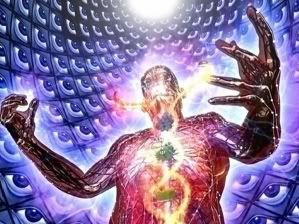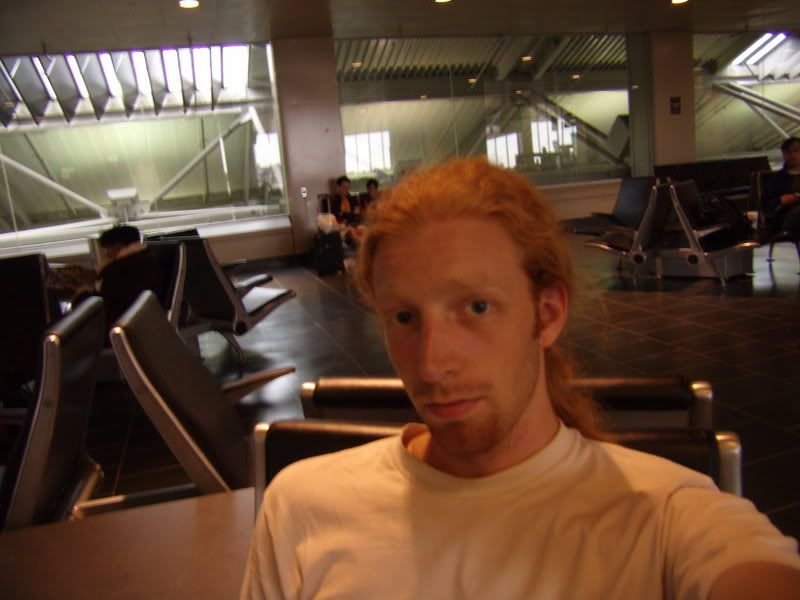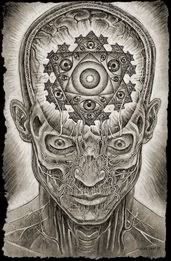Too Few
One might think that the pain fades in time; that the more these bonds stretch and break, the more numbing I’d find the loss. But this is not the case. No, over time the anxiety only builds because somewhere over these past months a concrete deed has become temporary in my head. I’ve given it an end, a release, a time when it will be righted, and toward such a terminus one dreams…. See it was never friends I lost or gave up; turns out it wasn’t even individuals. It was freedom in a sense. Or better, it was human beings, and of those there seem altogether too few.
And so it came to be that on the first day of the 21st year of Alyssa Mullen, as I stood in the center of a yelling mob, lawn chair raised high above my head, a deficiency in my life suddenly took on clarity. The thing that I had failed so miserably to articulate on so many occasions finally took the form of a word for me. It came to me again, that word, as I stood on the following day under the beating sun drinking donation beers in a nebulously managed non-bar, listening to loud rock from countless bands that seemed to draw their members from the crowd at random. Later that night the word came again, as we sat in some overgrown sheet metal enclosure burning used lumber found roadside and stolen for simple lack of communication.
Community is what came to echo in my head during these times. In what sense? Take for example the fact that at no point in two days did I find myself in the company of less than 10 individuals save maybe late at night when things tend to dwindle in the usual way. But sometimes it seemed thirty or more people were around me, all there for essentially the same purpose, however subdivided into tighter groups and relations. And of these people I knew many, but often not most, and met more of them than I could reasonably be expected to remember. And these groups, in such numbers, seemed inevitably to take the attitude that the rules somehow did not apply to them in full, the attitude that if they were criminal then they were also jury. These groups inevitably took on the behavior that seemed, at that time and place, to reflect the will of their members, without appeal to objective external customs or regulations; without appeal to laws or norms. They behaved as tribes do, where consequence comes only from within.
What I have failed to articulate so frequently is the difference between Detroit, so run down, dangerous, and devoid of worth to the outside viewer, and the thriving cities, Boston, NY, etc., with their cropped city parks, well maintained storefronts and high standard of living. The answer, at last, is community. The answer is that, without city works, without routine maintenance and ample police force, without plentiful jobs and plush accommodations, Detroit has developed a real community unlike anything found in the modern metropolis. The people have given up on the city; it provides them nothing. The city is not what looks after them and protects them, it is not what entertains them or provides them opportunity. The city is not what gives them comfortable places to relax and spend time. The city has utterly failed them and they instead turn to their neighbors. They turn to the principles of common good. In community and trust they find protection and piece of mind; in community they find their entertainment. Who builds the fire pits? Who is responsible for the best bars and parties? Who can claim responsibility for the festivals and shows, the music and the art? The People and the community. And who’s right is it then to make rules and punish. The police and city officials who have failed to protect them or ease their fears? No, it is only the tribe to which you are accountable. That is community, and these are human beings.
But in Boston, law and order come from the outside. The people are comfortable and entertained. They do not yell and hoist lawn furniture; the People would not be behind them. They do not make fires and play guitars in the night; there are clubs and sports teams enough to keep them entertained. There are no festivals in the streets because, though there’s money enough, the people have no pride and do no work. Here you owe your neighbors nothing because they provide you with nothing. The city provides and demands obedience and all are docile and in their place. They are clean and well dressed, they’ve no grit on their hands or stains on their clothes; they sleep at home and know routine. They have no thirst for blaring trumpets and no taste for Tequila. In summer, their porches are empty and their instruments are put away. There is no nature to be seen in the things they build. This is the price of protection and security, of manufactured entertainment, of centralized control and order. Where are the human beings here and where is the community?
The human being is filthy and uncouth. It is spontaneous and unpredictable. It is impulsive and acts in the moment. It is anxious and restless. The human being does not conform or check itself, it knows release in music and thought and destruction. It recognizes no institution. It loves other human beings and answers only to them. It loves excess in all things, yet it makes due on little and thrives in discomfort. It lives for the experience; lives to be confused and challenged, to be surprised and to learn. And it finds in other human beings something infinitely richer, more satisfying and more compelling than in all other works of nature.
Yes, of these there are far too few.
And so it came to be that on the first day of the 21st year of Alyssa Mullen, as I stood in the center of a yelling mob, lawn chair raised high above my head, a deficiency in my life suddenly took on clarity. The thing that I had failed so miserably to articulate on so many occasions finally took the form of a word for me. It came to me again, that word, as I stood on the following day under the beating sun drinking donation beers in a nebulously managed non-bar, listening to loud rock from countless bands that seemed to draw their members from the crowd at random. Later that night the word came again, as we sat in some overgrown sheet metal enclosure burning used lumber found roadside and stolen for simple lack of communication.
Community is what came to echo in my head during these times. In what sense? Take for example the fact that at no point in two days did I find myself in the company of less than 10 individuals save maybe late at night when things tend to dwindle in the usual way. But sometimes it seemed thirty or more people were around me, all there for essentially the same purpose, however subdivided into tighter groups and relations. And of these people I knew many, but often not most, and met more of them than I could reasonably be expected to remember. And these groups, in such numbers, seemed inevitably to take the attitude that the rules somehow did not apply to them in full, the attitude that if they were criminal then they were also jury. These groups inevitably took on the behavior that seemed, at that time and place, to reflect the will of their members, without appeal to objective external customs or regulations; without appeal to laws or norms. They behaved as tribes do, where consequence comes only from within.
What I have failed to articulate so frequently is the difference between Detroit, so run down, dangerous, and devoid of worth to the outside viewer, and the thriving cities, Boston, NY, etc., with their cropped city parks, well maintained storefronts and high standard of living. The answer, at last, is community. The answer is that, without city works, without routine maintenance and ample police force, without plentiful jobs and plush accommodations, Detroit has developed a real community unlike anything found in the modern metropolis. The people have given up on the city; it provides them nothing. The city is not what looks after them and protects them, it is not what entertains them or provides them opportunity. The city is not what gives them comfortable places to relax and spend time. The city has utterly failed them and they instead turn to their neighbors. They turn to the principles of common good. In community and trust they find protection and piece of mind; in community they find their entertainment. Who builds the fire pits? Who is responsible for the best bars and parties? Who can claim responsibility for the festivals and shows, the music and the art? The People and the community. And who’s right is it then to make rules and punish. The police and city officials who have failed to protect them or ease their fears? No, it is only the tribe to which you are accountable. That is community, and these are human beings.
But in Boston, law and order come from the outside. The people are comfortable and entertained. They do not yell and hoist lawn furniture; the People would not be behind them. They do not make fires and play guitars in the night; there are clubs and sports teams enough to keep them entertained. There are no festivals in the streets because, though there’s money enough, the people have no pride and do no work. Here you owe your neighbors nothing because they provide you with nothing. The city provides and demands obedience and all are docile and in their place. They are clean and well dressed, they’ve no grit on their hands or stains on their clothes; they sleep at home and know routine. They have no thirst for blaring trumpets and no taste for Tequila. In summer, their porches are empty and their instruments are put away. There is no nature to be seen in the things they build. This is the price of protection and security, of manufactured entertainment, of centralized control and order. Where are the human beings here and where is the community?
The human being is filthy and uncouth. It is spontaneous and unpredictable. It is impulsive and acts in the moment. It is anxious and restless. The human being does not conform or check itself, it knows release in music and thought and destruction. It recognizes no institution. It loves other human beings and answers only to them. It loves excess in all things, yet it makes due on little and thrives in discomfort. It lives for the experience; lives to be confused and challenged, to be surprised and to learn. And it finds in other human beings something infinitely richer, more satisfying and more compelling than in all other works of nature.
Yes, of these there are far too few.

 screaming godhead
screaming godhead



1 Comments:
Interesting to know.
Post a Comment
<< Home